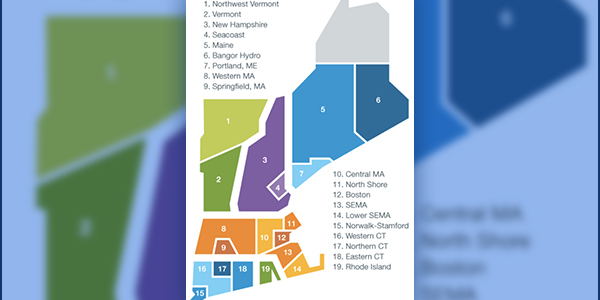NEPOOL’s Markets Committee voted Jan. 19 to recommend the Participants Committee support tariff changes to remove new-entrant rules for ISO-NE‘s Forward Capacity Market, which would prevent resources from locking in prices for seven years.
The revisions will bring the tariff into compliance with a December FERC order that found the rules to be an “unreasonable price distortion” and “no longer required to attract new entry.” (See FERC Orders End to ISO-NE Capacity Price Locks.)
The MC approved the action in a voice vote with one abstention.
The RTO noted that the two tariff revisions will only impact upcoming Forward Capacity Auctions, leaving in place locked-in prices for FCA 15 and earlier auctions. Price-lock elections for FCA 15 were made in June 2020 when suppliers submitted their qualification packages for new resources.
ISO-NE did not propose removing any tariff language because the remaining provisions for price-locked resources need to stay in place until the completion of all elections, which account for any permitted deferrals.
FERC said entry of new resources should be driven “at least in part” by future price expectations, but that the price lock interferes with that dynamic. By eliminating price risk, a new resource may lower its offer price to increase the likelihood of being selected in the auction. FERC said that if that resource represents the marginal resource, the lower clearing price “distorts the price signal sent by the FCM and reduces the price paid to all capacity suppliers in that auction.”
The commission added that it previously recognized that new-entrant rules could result in price suppression but ultimately found that it was “an acceptable byproduct of market rules that would attract new entry through greater investor assurance and protect consumers from very high year-one prices.”
Price-lock rules have been in effect since ISO-NE began its capacity market in 2006. The rules allowed capacity resources to sell at the same price for five years — extended to seven years in 2014 — with resources offering in FCAs at $0 after the first year to ensure that they cleared. Although this prevented them from taking advantage of higher prices, it was viewed as a shield against lower prices.
ISO-NE implemented several FCM changes when the price-lock period was extended, including a system-wide downward sloping demand curve to address capacity price volatility. It also implemented enhanced market scarcity pricing that increased reserve constraint penalty factors for 10- and 30-minute reserves and pushed up the price that resources are paid for energy and reserves in real-time during scarcity conditions.
When FERC approved the price-lock extension, it allowed ISO-NE to forego an offer floor for resources, which prompted a legal challenge from Exelon and the New England Power Generators Association. The D.C. Circuit Court of Appeals remanded FERC’s approval in February 2018, though the court did not vacate the rules. (See DC Circuit Orders FERC to Review ISO-NE Auction Orders.)
ISO-NE must file its compliance filing with FERC on or before Feb. 1. According to a voting memo from ISO-NE counsel Chris Hamlen, the RTO is tentatively planning to request an effective date of April 2, 2021 for the proposed revisions, a week before the FCA 16 show-of-interest window. FCA 16 is scheduled for February 2022.



